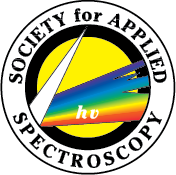SAS Certification Program
CODE OF ETHICS
Preamble: This code provides guiding principles of conduct for all members of the Society for Applied Spectroscopy and all spectroscopists certified by the Society. It is the desire and purpose of the Society to support and encourage spectroscopic research and education, and to facilitate the application of spectroscopy in all areas of research. Towards these ends, this Code is intended to further spectroscopic understanding through the open and honest communication of research; to assure appropriate accessibility of accurate and reliable information to employers, policy makers, and the public; and to encourage effective education and training in the spectroscopy. Individuals aware of breaches of this Code are encouraged to refer to the Society’s procedures for addressing violations of the Code, and to communicate with the Society’s Executive Director who will explain the code and process.
General: All members of the Society for Applied Spectroscopy and all spectroscopists certified by the Society should observe the following principles in the conduct of their professional affairs
- Will offer professional advice and guidance only on those subjects in which they are informed and qualified through professional training or experience.
- Will not represent themselves as spokespersons for the Society without express authorization by the President of SAS.
- Will cooperate with other researchers whenever possible and appropriate to assure rapid interchange and dissemination of knowledge.
- Will not plagiarize in verbal or written communication, but will give full and proper credit to the works and ideas of others, and make every effort to avoid misrepresentation.
- Will not fabricate, falsify, or suppress results, deliberately misrepresent research findings, or otherwise commit scientific fraud.
- Will conduct their research so as to avoid or minimize adverse environmental effects of their presence and activities, and in compliance with all legal
- Will, to the extent practicable, engage meaningfully with the communities in which they practice to promote teaching, learning and an understanding of their study; broaden the participation of underrepresented groups; enhance local infrastructure for research and education; and disseminate results broadly to benefit the local community.
- Will not discriminate against others, in the course of their work on the basis of gender, sexual orientation, marital status, creed, religion, race, color, national origin, age, economic status, disability, or organizational affiliation.
- Will not practice or condone harassment in any form in any professional context.
- In communications, should clearly differentiate facts, opinions, and hypotheses.
- Will not seek employment, grants, or gain, nor attempt to injure the reputation or professional opportunities of another scientist by false, biased, or undocumented claims, by offers of gifts or favors, or by any other malicious action.
Certified Spectroscopists: Spectroscopists certified by the Society for Applied Spectroscopy are expected to adhere to all sections of the Code; the following principles apply particularly to such individuals.
- Certified spectroscopists will present evidence of their qualifications, including professional training, publications, and experience, when requested in connection with their work as a certified spectroscopist.
- Certified spectroscopists will inform a prospective or current employer or client of any professional or personal interests which may impair the objectivity of their work, and, upon request, provide clients and employers with this Code.
- Certified spectroscopists will respect requests for confidentiality from their employers or clients, provided that such confidentiality does not require violation of this Code or of legal statutes. Should conflicts arise between maintenance of confidentiality and legal or ethical standards, certified spectroscopists should advise clients or employers of the conflict in writing.
- In seeking employment through bids, certified spectroscopists will describe salaries and fees and the extent and kinds of service to be rendered as accurately and fully as possible.
- Certified spectroscopists should use resources available to them through institutional employment, in performance of work contracted independently of their employing institution, only with the full knowledge and consent of the employing institution. Inappropriate use of access to institutional resources should be avoided; the appropriateness of particular uses of institutional resources should be addressed by the employing institution.
- Certified spectroscopists will accept compensation for a particular service or report from one source only, except with the full knowledge and consent of all concerned parties.
- Certified spectroscopists will utilize, or recommend utilization of appropriate experts whenever such action is essential to solving a problem.
- Certified spectroscopists will not knowingly associate professionally with, or allow the use of their names, reports, maps, or other technical materials by any enterprise known to be illegal or fraudulent.
- Certified spectroscopists may advertise their services, but may not use misleading, false, or deceptive advertising. If Society certification is noted in advertisement, the level of certification must be included.
